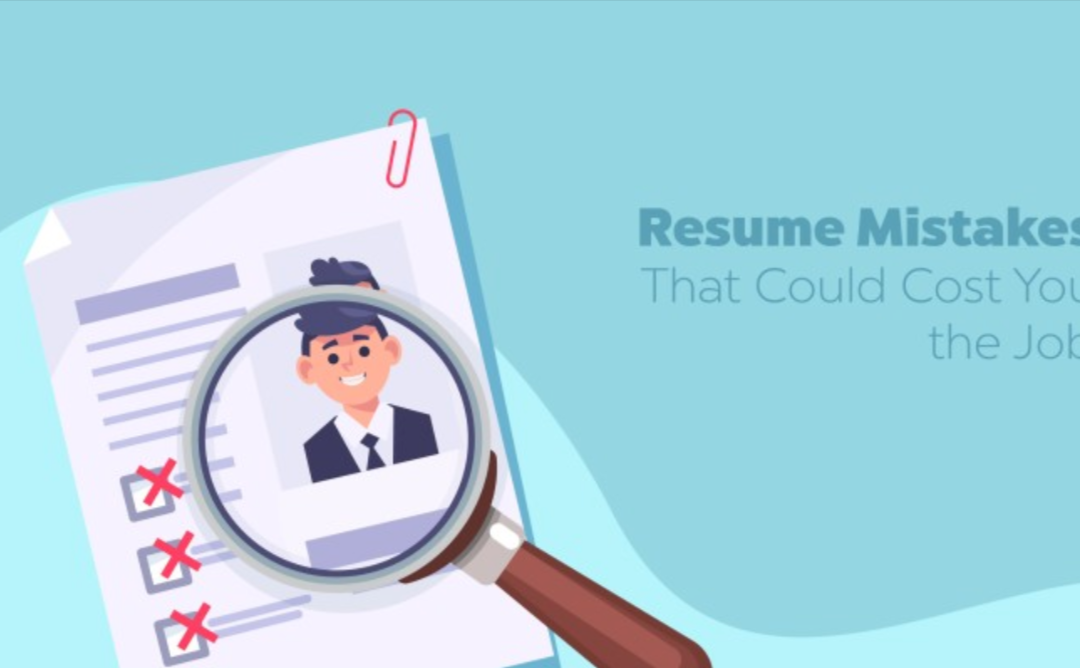
by admin | Jul 16, 2024 | Job, Employee Orientation, Employment Application, Interview Techniques
If you’re searching for a new job, you know how important it is to write a great resume. It’s the first impression a hiring manager will have of you, so you’ll need to make it count.
Although you may be a qualified candidate, you may be unknowingly making resume mistakes that can get you rejected from a role. To make sure you have a top-notch resume that will land you an interview, avoid these six resume mistakes.
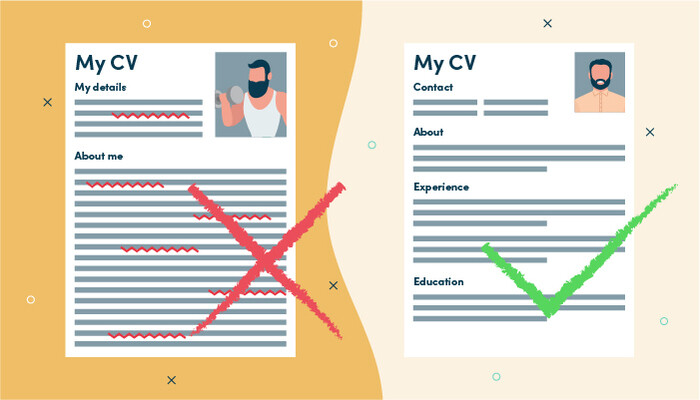
Being vague throughout your resume
To write a resume that stands out, you’ll need to do more than simply list out your daily tasks. Employers want to interview candidates they know can be successful in the role. They won’t know if you’re qualified if you aren’t specific with what you’ve done. That’s why it’s so important to write a detailed resume that showcases your particular skillset. Not only will it paint a better picture of your skills to the hiring manager, but it can also make you resume more memorable.
Not listing out your accomplishments at work
One of the biggest resume mistakes job seekers make is forgetting to include their accomplishments. Compared to simply telling the hiring manager what your previous responsibilities were, sharing your accomplishments shows the value you can offer the company. Being able to share your successes will make you more credible to the hiring manager and help you get through to the next stage of the hiring process.
Using Passive Tense Throughout Your Resume
The way you write your resume may make all the difference when applying to roles. That’s why you need to use action verbs over a passive tense throughout your resume. For example, avoid writing something like, “Revenue increased while working on digital campaigns” and instead write “Increased revenue by 10% through digital campaigns.” This will make you seem more assertive and accomplished throughout your entire resume.
Including irrelevant information
Most hiring managers will only skim through your resume before they decide if you’re a good fit. To make sure they only read the relevant parts of your resume, take out the outdated information that may not be applicable to the role. For example, if you’ve been working for 10 years, don’t include your college activities on your resume. Including this type of information will only take up space that you could be using to showcase why you’re a fit for the role.
Writing a generalized resume
It may take up less time on your end to only write a generalized resume, but you may not land any interviews with it. You don’t necessarily need to redo your entire resume for each role you apply to. However, it is beneficial to tweak your resume based on the job description. To save time, take a look at the roles you’ve applied for. Do they fall into different categories? If so, create different resumes that align with the different categories of roles you’re interested in to keep yourself more organized.
Not running a spellcheck
Attention to detail is essential for most jobs out there. If you have multiple grammatical and spelling errors, your resume will land in the trash folder right away. Take the time to look through your resume to make sure everything is spelled correctly and written properly. This only takes a few minutes and can make all the difference when you apply to roles.

by admin | Jul 16, 2024 | Employee Handbooks, Employee Orientation, Employment Application, Interview Techniques, Job, Skills Gap Analysis
Losing a valuable employee is never easy. It can take weeks or months to find a replacement, and the void can place a heavy burden on the rest of your team. Employee retention with top performers can be tricky—it is difficult to tell when they are dissatisfied, and you may be inadvertently making critical mistakes. According to our 2019 Hiring Outlook, here are the top 4 reasons why good employees leave:

Lack of work-life balance
With flexible working arrangements becoming more accessible, top employees are less willing to compromise. When more flexible options are available, employees are quick to leave if they don’t have the work-life balance they desire. Take a look at your flexible work policies to see how you might be able to improve your offerings and increase retention.
Poor relationship with manager
The relationship between manager and employee affects the daily experience of every staff member. An employee’s manager might be driving away top talent if they:
Are not transparent
don’t recognize accomplishments
don’t ensure their employees feel valued
Ensure that leadership within your company are setting a positive example for their staff and communicating well with their team.
Not a cultural fit
When employees don’t feel a part of the group, they are quick to find somewhere else where they feel like they belong. Company culture is more than just parties—it’s about ensuring that your staff feels valued, and they know that you prioritize people over profit. The more employees build trusting relationships with one another, the stronger your culture is.
Lack of advancement opportunities
The #1 reason professionals left their last job was lack of advancement opportunities. Today’s employees prioritize career development more than anything else, and the most talented professionals are always looking for ways to expand their skillsets. If they feel their work has become too “routine” or fear that they have become complacent with evolving industry trends, they’ll start exploring opportunities that offer more growth potential.
Source:https://tandymgroup.com
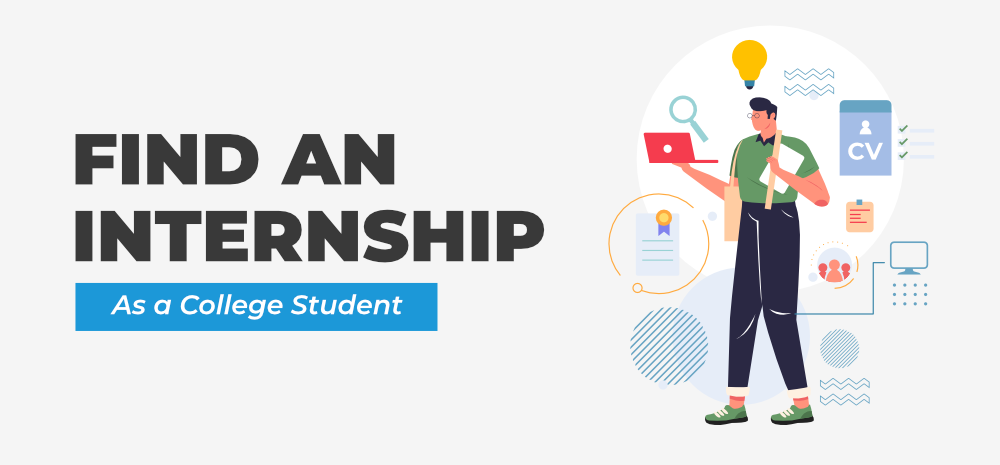
by admin | May 29, 2024 | Employee Orientation, Employee Handbooks, Job, Job Analysis, Skills Gap Analysis, Study
Finding and landing an internship as a college student is an important step in building a career foundation. Here’s a guide on how to search for and secure internships effectively:

Step 1: Define Your Goals
Start by understanding what you want to achieve through an internship. Are you looking to gain specific skills, explore a particular industry, or connect with a professional network? Clear objectives will help guide your search and decision-making process.
Step 2: Research Opportunities
– Online Job Boards: Websites like Indeed, LinkedIn, Glassdoor, and specialized sites such as Internships.com are great resources.
– University Career Center: Many colleges offer resources and counseling specifically for students seeking internships. They often have connections with companies looking for interns.
– Company Websites: If you have target companies in mind, visit their careers section. Many companies post internship opportunities directly on their websites.
– Networking: Attend career fairs, industry conferences, and networking events. Sometimes, opportunities come from personal connections, including professors, family, or friends.
Step 3: Prepare Your Application Materials
– Resume: Tailor your resume to highlight relevant coursework, projects, and skills that align with the internship. Keep it concise and professional.
– Cover Letter: Write a personalized cover letter for each application, explaining why you are interested in the internship and how you can contribute.
– Portfolio: For fields like graphic design, journalism, or software engineering, prepare a portfolio of your best work.
Step 4: Apply Early and Often
Internship positions, especially in competitive fields, can fill quickly. Start your search early in the academic year and apply to multiple opportunities to increase your chances.
Step 5: Prepare for Interviews
– Research the Company: Understand their products, services, culture, and industry.
– Practice Common Interview Questions: Prepare responses to common questions such as “What are your strengths and weaknesses?” or “Why do you want this internship?”
– Mock Interviews: Consider doing mock interviews with friends, family, or career counselors to build confidence.
Step 6: Follow Up
After an interview, send a thank-you email to express your appreciation for the opportunity to interview and reiterate your interest in the position. This can set you apart from other candidates.
Step 7: Evaluate Offers
If you receive multiple internship offers, compare them based on how well they meet your initial goals, the kind of learning opportunities they provide, and other factors like compensation and location.
Step 8: Learn and Network During Your Internship
Once you secure an internship, maximize the experience:
-Learn as Much as Possible: Take the opportunity to learn from everyone you can. Ask questions, seek feedback, and take on challenging projects.
– Build Relationships: Network with colleagues and other interns. These relationships can be valuable for your future career.
– *Maintain Professionalism: Treat the internship like a real job. Be punctual, meet deadlines, and contribute positively to the team.
Step 9: Reflect and Follow Up
After completing your internship, reflect on what you learned and how it aligns with your career goals. Stay in touch with your supervisors and coworkers, as they can be valuable references or mentors.
By following these steps, you can effectively search for, apply to, and maximize the benefits of internships, paving the way for future career opportunities.
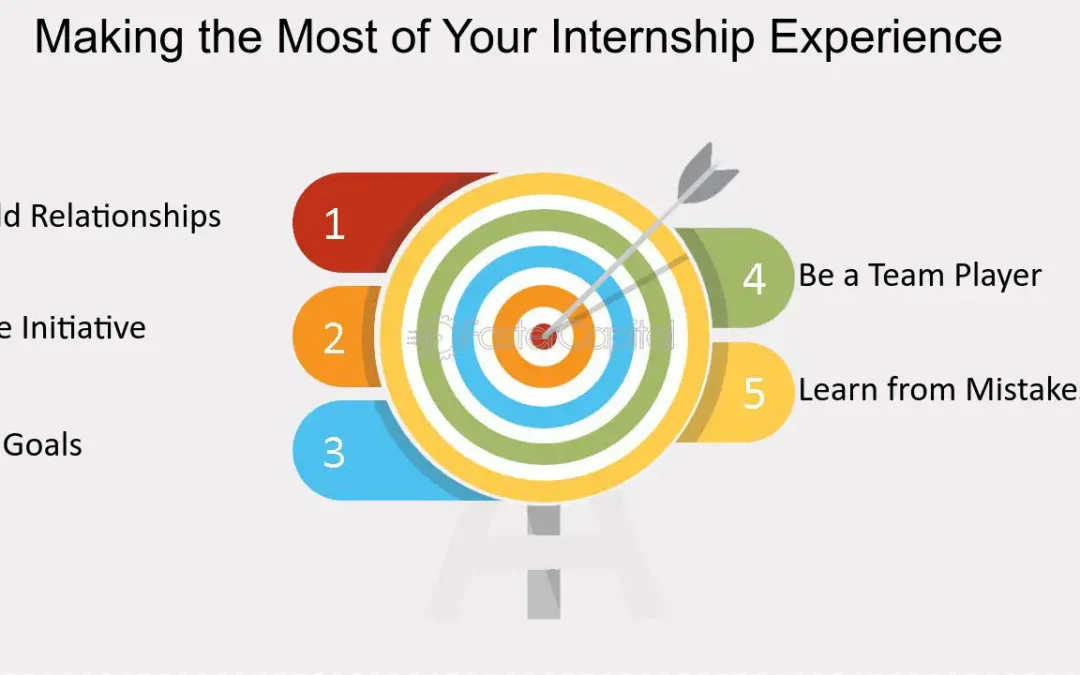
by admin | May 29, 2024 | Job Analysis, Employee Handbooks, Employee Orientation, Employment Application, Job, Skills Gap Analysis, Study
An internship is a valuable opportunity to gain practical experience, build professional skills, and establish a network in your desired industry. Here’s a comprehensive guide on how to make the most of your internship experience:

1. Set Clear Goals
Before starting your internship, define what you hope to achieve. Are you looking to develop specific skills, gain insights into a particular industry, or make professional connections? Setting clear, measurable goals will help you stay focused and evaluate your progress.
2. Understand Your Role and Responsibilities
– Learn the Basics: Understand the fundamental tasks and expectations of your role. Don’t hesitate to ask for a detailed description of your responsibilities.
– Ask Questions: In the beginning, you might feel overwhelmed. Ask questions to clarify tasks and expectations to ensure you’re on the right track.
3. Be Proactive
– Take Initiative: Look for opportunities to contribute beyond your assigned tasks. This could involve suggesting new ideas or helping a project in need.
– Seek Additional Projects: As you grow more comfortable in your role, ask for more responsibilities that align with your career interests and goals.
4. Build Your Network
– Connect Internally: Introduce yourself to as many coworkers as possible, not just those in your immediate team. Attend company events and social gatherings.
– Seek a Mentor: Identify someone within the organization from whom you can learn. This could be your supervisor or another experienced colleague.
– Maintain Contacts: Even after your internship ends, keep in touch with your colleagues and mentors. They can provide valuable advice and may inform you of future job opportunities.
5. Observe and Learn
– Industry Knowledge: Pay attention to how the company operates and how your department fits into the larger picture. Understand the industry trends and challenges.
– Professional Skills: Note the soft skills displayed by successful employees, such as communication, teamwork, and problem-solving.
6.Ask for Feedback
– Regular Feedback: Regularly ask for feedback on your performance. This not only shows your eagerness to improve but also helps you adjust your approach before small issues become larger.
– Performance Review: If your internship program includes a formal review, prepare by reviewing your accomplishments and areas for improvement.
7. Document Your Experience
– Keep a Journal: Regularly write down what you learn, the skills you develop, the projects you work on, and the people you meet.
– Portfolio: For creative fields, keep samples of your work to show future employers. For other fields, a detailed list of project roles and impacts can be useful.
8. Professional Conduct
– Punctuality : Always arrive on time or early, and respect deadlines.
– Dress Appropriately : Follow the company’s dress code, aiming for a professional appearance.
Ethics and Confidentiality: Be mindful of the company’s code of conduct, especially with confidential information.
9. Reflect on Your Experience
At the end of your internship, reflect on what you’ve learned and how it applies to your career goals. Evaluate the extent to which you’ve achieved your initial goals and what steps you should take next in your career path.
10. Exit Gracefully
– Thank You Notes : Send personalized thank-you notes to your supervisor and anyone else who was particularly helpful during your internship.
– Exit Interview : If an exit interview is offered, participate thoughtfully. Provide constructive feedback about the internship experience and express gratitude for the opportunity.
By actively engaging in these practices, you can maximize your internship experience, making it a pivotal step towards a successful career.
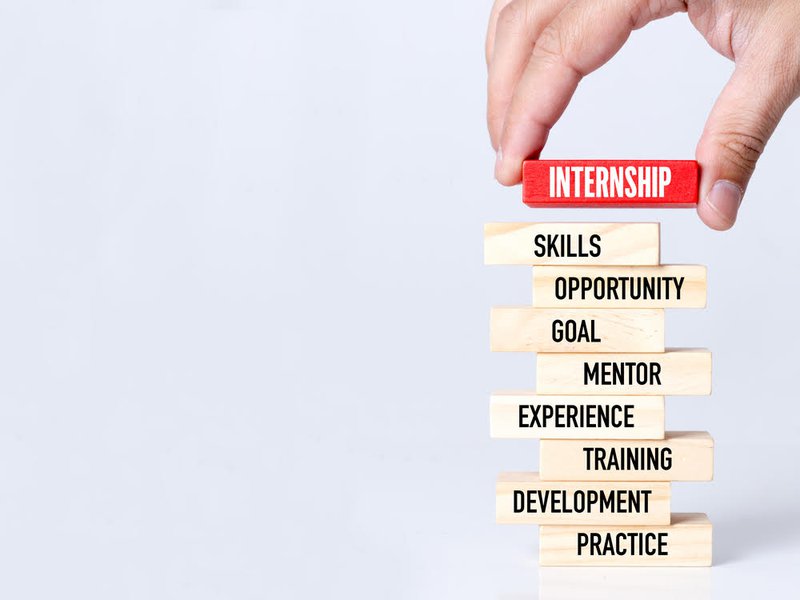
by admin | May 29, 2024 | Employee Handbooks, Employee Orientation, Employment Application, Interview Techniques, Job Analysis, Skills Gap Analysis, Uncategorized
Preparing for an internship involves several steps to ensure you’re ready to make the most of the experience. Here are some key steps to consider:
1. Research the Company:
– Understand the company’s mission, culture, products, and the industry it operates in. This will help you make informed contributions and ask insightful questions.
2. Review the Job Description:
– Familiarize yourself with the tasks you’ll be expected to perform. Understanding the skills and knowledge required will help you focus your preparation.
3. Update Your Resume and Cover Letter:
– Tailor your resume and cover letter to highlight skills and experiences relevant to the internship. Make sure they are error-free and professional.
4. Prepare for the Interview:
– Practice common interview questions and scenarios specific to the role you’re applying for. Consider doing mock interviews with friends or mentors to build confidence.
5. Develop Relevant Skills:
– Based on the job description, work on any skills you need improvement on. This could involve taking online courses, reading relevant books, or practicing certain tasks.
6. Network:
– Reach out to current or past employees at the company, especially those in the department you’re interested in. LinkedIn can be a great tool for this. Ask them about their experience and any advice they might have for a newcomer.
7. Understand Professional Etiquette:
– Learn about professional etiquette in your industry, including dress code, communication norms, and office behavior.
8. Set Goals:
– Think about what you want to achieve during your internship. Setting clear, achievable goals can help you stay focused and make the most of your experience.
9. Prepare Logistically:
– Ensure you know the commute time, workspace setup, start date, and work hours. If it’s a remote internship, check your internet connection and digital tools you might need.
10. Stay Organized:
– Keep track of important dates, tasks, and any materials you need for your internship. Using a planner or digital tools can help manage your responsibilities effectively.
By following these steps, you’ll be well-prepared to start your internship and make a positive impression!

by admin | May 3, 2024 | Job Analysis, Employee Orientation, Employment Application, Skills Gap Analysis, Study
Transitioning from the world of academia to the workforce can be both exhilarating and daunting. As a student on the brink of entering the professional realm, you may have questions about what to expect and how to navigate this significant life transition. Fear not! Here’s a comprehensive guide to help you prepare for the journey ahead.

1. Adjusting Your Mindset
The shift from student to employee involves more than just a change in schedule—it requires a shift in mindset. Embrace the reality that you are now part of a team working towards common goals. Be prepared to take on responsibilities, make decisions, and contribute your skills and expertise to your new workplace.
2. Navigating Company Culture
Every workplace has its own unique culture and set of norms. Take the time to observe and understand the culture of your new workplace. Pay attention to how people communicate, dress, and interact with one another. Adapt your behavior accordingly while staying true to your values and principles.
3. Mastering Time Management
In the professional world, time is a precious commodity. Learn to prioritize tasks, set deadlines, and manage your time effectively. Utilize tools and techniques such as to-do lists, calendars, and time-blocking to stay organized and focused. Remember, punctuality is key—arrive on time for meetings and deadlines.
4. Developing Professional Relationships
Building strong relationships with your colleagues is essential for success in the workplace. Be approachable, friendly, and open to collaboration. Take the initiative to introduce yourself, ask questions, and seek feedback. Cultivate positive working relationships based on trust, respect, and mutual support.
5. Embracing Continuous Learning
Just because you’ve graduated doesn’t mean your learning journey is over. Embrace the mindset of lifelong learning and professional development. Seek out opportunities to expand your knowledge and skills through training programs, workshops, and certifications. Stay curious, adaptable, and open to new experiences.
6. Navigating Office Politics
Office politics can be tricky to navigate but ignoring them won’t make them disappear. Be aware of the dynamics at play in your workplace and tread carefully. Avoid gossip, cliques, and power struggles. Focus on your work, maintain professionalism, and build alliances based on merit and mutual respect.
7. Managing Expectations
As a new employee, you may feel pressure to prove yourself and excel in your role. While ambition is admirable, it’s important to manage your own expectations realistically. Give yourself time to adjust to your new environment, learn the ropes, and grow into your role. Rome wasn’t built in a day, and neither is a successful career.
8. Seeking Feedback and Growth Opportunities
Don’t be afraid to seek feedback from your managers, colleagues, and mentors. Use constructive criticism as an opportunity for growth and improvement. Take on new challenges, volunteer for projects outside your comfort zone, and actively seek opportunities for advancement within your organization.
9. Maintaining Work-Life Balance
Finally, remember to prioritize your well-being and maintain a healthy work-life balance. Set boundaries between work and personal life, and make time for activities that recharge your batteries and bring you joy. Remember, a happy and fulfilled employee is a productive employee.
In conclusion, transitioning from student to employee is a significant milestone in your life journey. By adjusting your mindset, navigating company culture, mastering time management, developing professional relationships, embracing continuous learning, navigating office politics, managing expectations, seeking feedback and growth opportunities, and maintaining work-life balance, you can successfully navigate this transition and thrive in your new role. So, embrace the journey with confidence, curiosity, and a willingness to learn and grow. Your future awaits!











